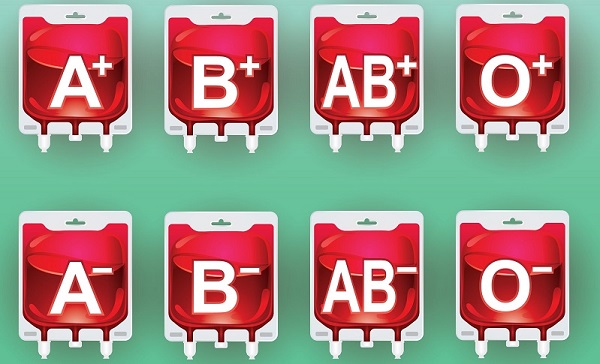
- Biology - Home
- Biology - Classification of Organisms
- Biology - Cell Division
- Biology - Virus
- Biology - Bacteria
- Biology - Fungi
- Biology - The Roots
- Biology - The Plant Stem
- Biology - The Plant Leaf
- Biology - The Flowers
- Biology - The Fruit
- Biology - Plant Diseases
- Biology - The Blood
- Biology - Blood Group
- Biology - Human Brain
- Biology - Skeleton System
- Biology - Endocrine System
- Biology - Endocrine Diseases
- Biology - Carbohydrate
- Biology - Proteins
- Biology - Fats
- Biology - Vitamins
- Biology - Minerals
- Biology - Genetic Terminology
- Organisms & their Chromosome Counts
- Biology - Viral Diseases
- Biology - Bacterial Diseases
- Branches of Biology
- Inventions & Discoveries in Biology
- Nobel Prize in Biology
Biology - Blood Group
Introduction
Based on the presence and absence of antibodies, the blood is classified into different groups.
Further, while classification, the presence and absence of the inherited antigenic substances also considered.

The types of blood groups are inherited and represent contributions from both the father and the mother.
ABO Blood Group System
In human blood, usually, there are two antigens and antibodies.
The two antigens are antigen A and antigen B.
The two antibodies are antibody A and antibody B.
The antigens are remaining in the red blood cells, whereas the antibodies are found in the serum.
-
Based on the antigen property, the blood group of all human beings can be classified as −
Blood Group A − antigen A and antibody B
Blood Group B − antigen B and antibody A
Blood Group AB − antigen A and antigen B and no antibody
Blood Group O − no antigen, but antigen A as well as antibody B
Consideration of the ABO system is the most imperative while transfusion of human blood.
The ABO blood group systems were first discovered by Karl Landsteiner in 1901.
Rh Blood Group System
The Rh system (the meaning of Rh is Rhesus) is another significant blood-group system. It is very important to match Rh system while blood transfusion.
Rh antigen first studied in Rhesus monkeys; therefore, its name is given Rh factor/system.
The person who does not have Rh antigen is known as Rh negative (Rh-ve) and the person who has the Rh antigen is known as Rh positive (Rh+ve).
Blood Transfusion
Based on the above discussed two blood grouping system (i.e. ABO and Rh), the following table illustrates the possibilities of blood transfusion among different blood groups −
| Recipient | Donor | |||||||
|---|---|---|---|---|---|---|---|---|
| O- | O+ | A- | A+ | B- | B+ | AB- | AB+ | |
| O- | Yes | No | No | No | No | No | No | No |
| O+ | Yes | Yes | No | No | No | No | No | No |
| A- | Yes | No | Yes | No | No | No | No | No |
| A+ | Yes | Yes | Yes | Yes | No | No | No | NO |
| B- | Yes | No | No | No | Yes | No | No | No |
| B+ | Yes | Yes | No | No | Yes | Yes | No | No |
| AB- | Yes | No | Yes | No | Yes | No | Yes | No |
| AB+ | Yes | Yes | Yes | Yes | Yes | Yes | Yes | Yes |
Conclusion
Based on the blood transfusion table given above the blood group O- is the universal donor, which can give blood to the person of any blood group.
Secondly, the blood group AB+ is the universal recipient, as it can accept blood from the person of any blood group.